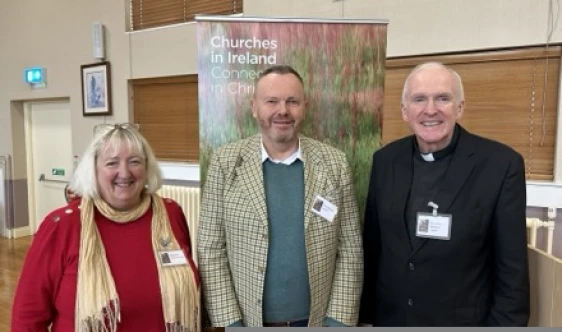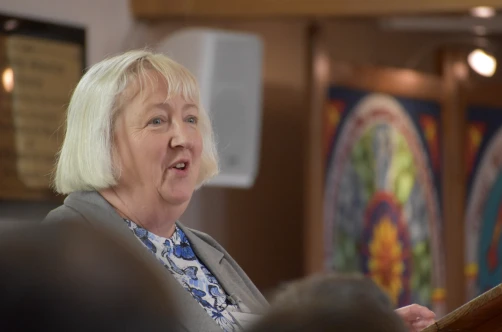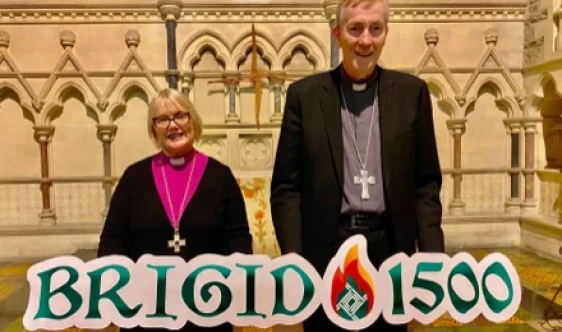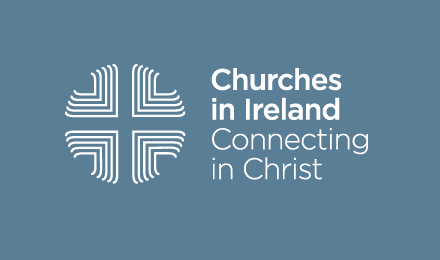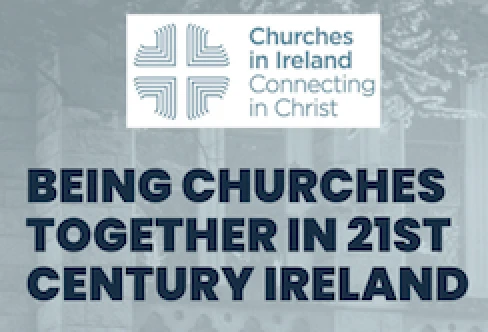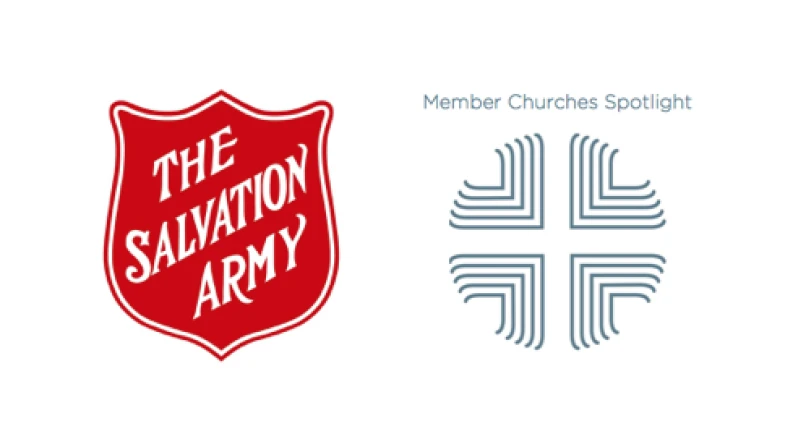
Cooperative Partnership and Trust : The Salvation Army
For our latest Member Spotlight on the Salvation Army we spoke to Majors Paul Kingscott (Divisional Leader of the Ireland Division), Paul Wright and Imogen Stewart (Division Mission Enablers) and David Evans (Territorial Ecumenical Officer), to discuss the work of the Salvation Army in Ireland and the UK and the importance of ecumenical partnership.
What are the priority concerns arising from your work in the UK and Ireland at present?
The Salvation Army is well known for our anti–poverty work and that remains a priority area of mission. Supporting people who fall through the gaps in services and supports—such as those unable to access social housing or those left without income because of Universal Credit decisions—is a core element of the work. It is a major concern that increasing numbers of individuals and families are turning to the Salvation Army for support because of poverty and homelessness.
The Salvation Army is particularly concerned about the growth in hidden forms of poverty, which are often combined with increased social isolation. Social exclusion is a major contributory factor, but there are other causes of loneliness that need to be priority concerns for churches, including health issues, addiction and bereavement. People dealing with mental health issues are among the most vulnerable people we encounter, as they can face significant barriers in accessing support.
We are also acutely aware of the need to protect the health and wellbeing of those in ministry who give so much of themselves in the service of others. It is vital that people have adequate support and access to confidential space for spiritual and emotional support when working in challenging conditions.
Another priority we would like to highlight is the issue of violence in society. We welcome recent cross–community initiatives in Northern Ireland to draw attention to the corrosive impact of continued paramilitary violence on communities, especially youth. The focus on knife crime in parts of Great Britain has shone a spotlight on the withdrawal and reduction of, key supports and services that help keep young people away from violence and criminality, such as youth clubs. It would be important for churches to reflect on their contribution to efforts to eradicate this type of violence and how, in particular, they might reach out to at–risk youth.
The uncertainty arising from Brexit and its possible implications for our work are significant concerns. We have developed a resource to help our corps work through what the consequences might be and how they can prepare to respond.
Are there significant differences between jurisdictions in the UK and Ireland that impact your work?
The basic human needs of individuals and communities are the same wherever you go, but the context for the work will be shaped by the local history and culture. In Northern Ireland, the persistence of sectarianism, and segregation in some areas, exacerbate the social and economic challenges people face. The Salvation Army works on a cross–community basis and adopts a partnership approach wherever possible. The Christmas Appeal organised jointly with the Society of St Vincent de Paul is an important example of this.
Throughout Great Britain there are well–established local ecumenical partnerships that facilitate churches working together on a range of issues. This can be significant when we need to engage in advocacy with Government or local authorities on social justice issues—the collective voice of the churches carries more weight. Often, Christian Churches will work on an interfaith basis because of the religious, cultural and ethnic diversity of the communities in which they work. That is something that is relatively new on the island of Ireland.
In terms of social issues, Northern Ireland has not yet experienced the full impact of Universal Credit for two reasons: it was rolled out later in this jurisdiction, and the Northern Ireland Executive has funded a mitigation package to offset the most severe consequences for the most vulnerable groups. Looking at what has happened in other parts of the UK, we would be concerned about the potential impact if those mitigations were to cease. The problem of homelessness is much more visible in UK cities than in Ireland, but we are seeing increasing numbers of people presenting as homeless. In particular, we are exploring ways to support families, who are experiencing, homelessness that will protect family life as much as possible at this difficult time.
How would you describe your approach to inter–church and inter–faith engagement?
Acts 2:44 tells us that ‘all the believers were together and had everything in common’. Working together is therefore an essential part of the living out of our Christian faith. For more people to be reached, and to be reached with lasting effect, there is a need to work together. This means being open to all inputs and sharing from churches of different size and tradition. Receptive ecumenism brings this into focus; churches working together as sisters and brothers in Christ. The benefits of these partnerships are endless from local to national level.
Locally, corps engage with other churches through programmes such as food–banks, street pastors and youth clubs. Some corps also enjoy combined seasonal events such as carol services with the local churches in their area. These chances to network with others often are not only beneficial at a personal level for the individuals involved, but they also allow us to make best use of our resources. When churches are brought together and learn about each other, trust begins to form. This trust is a major benefit because it paves the way for a united approach when responding to issues of social justice at all levels. This is particularly significant in times of crisis and emergency when a joint response from churches and other faith groups allows them to respond in both practical and pastoral ways to the needs of a traumatised community. Salvation Army members have experienced the value of this joint witness in response to recent events in London, such as the Westminster Bridge attack and the Grenfell Tower tragedy, both in 2017.
God’s vision for this people is ‘that all of them may be one’ (John 17:21) and there is still much more that churches could be doing together. We need to be proactive about keeping each other informed about major events and initiatives. We could also collaborate more in terms of advocacy and engagement with Government, bringing that collective voice.
In terms of inter–faith engagement, the Salvation Army is present in 131 countries and so interfaith relationships are often at the core of our mission. Inter–cultural relationships often come alongside inter–faith relationships as it is helpful to learn about faith through culture and tradition.
At local level lots of opportunities can be identified to allow space for these relationships to develop. These can be formal, structured engagements, such as inter–faith forums, or more informal community initiatives, such as shared garden groups. What they have in common is the opportunities they offer to develop an understanding of other faiths and how to relate to them on a basis of mutual respect.
You can find out more about the Salvation Army here: https://www.salvationarmy.org.uk
